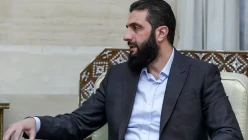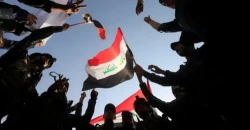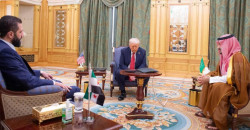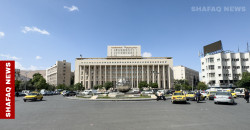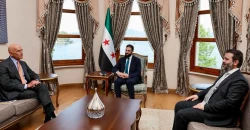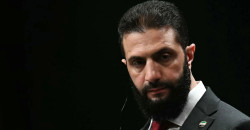Hope and hurdles: Syria reacts to unexpected US sanctions relief
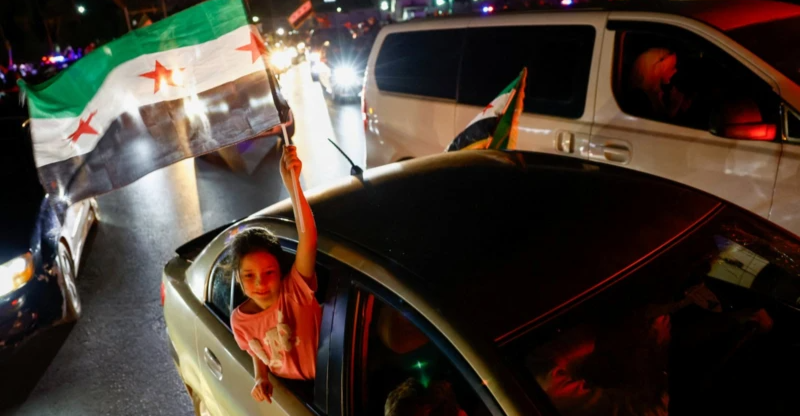
Shafaq News/ US President Donald Trump has lifted all sanctions on Syria, six months after the collapse of Bashar al-Assad’s regime, sparking a mix of relief and skepticism among Syrian activists and observers in Washington.
While some welcomed the move as a long-overdue breakthrough, others expressed concern about the unclear path to implementation, the conditional nature of the relief, and its wider implications for regional stability and domestic security.
This decision marks the most significant shift in Washington’s Syria policy since sanctions were first imposed in 2011, in response to what the US characterized as al-Assad’s “brutal suppression” of protests.
Over the years, these sanctions have expanded through multiple executive orders and Congressional legislation, most notably the 2019 Caesar Act, which targets individuals, companies, and sectors linked to the regime’s military actions and human rights abuses.
According to the US Treasury Department, more than 400 Syrian individuals and entities have been sanctioned under the Caesar Act and related laws. Syria’s war-ravaged economy, already in freefall, shrank by over 75% between 2010 and 2020. The World Bank estimates that rebuilding the country will require more than $400 billion. Meanwhile, humanitarian organizations report that over 90% of Syrians live below the poverty line, with millions dependent on international aid for their most basic needs.
A US Playbook for Syria
In a statement on X, White House spokesperson Karoline Leavitt outlined the five conditions, President Trump urged Syria’s new transitional President, Ahmad al-Sharaa, to meet. More than a pathway to lifting sanctions, the document is widely seen as a conditional roadmap for Syria’s re-entry into the international system.
At the top of the list, Washington expects Damascus to join the Abraham Accords and formally recognize Israel, marking a dramatic break from Syria’s longstanding foreign policy. The new leadership is also expected to expel all foreign fighters from Syrian territory and deport Palestinian militants listed on US terrorism watchlists.
Another key condition involves full cooperation with Washington to prevent a resurgence of ISIS, especially in areas where militant activity has recently intensified. Additionally, the Trump administration is pressing for control over ISIS detention centers in northeastern Syria, currently operated by the US-backed Syrian Democratic Forces, to be transferred to the Syrian state.
Trump’s announcement, delivered during a visit to Saudi Arabia, reportedly caught senior members of his own administration off guard. Four US officials told Reuters that neither the State Department nor the Treasury had been informed in advance—no internal directives or formal memoranda had been circulated.
In response, departments responsible for sanctions enforcement launched urgent internal reviews. With some sanctions dating back over four decades, officials acknowledged the complexity of the task. One senior official remarked, “Everyone is trying to figure out how to implement this.”
While the plan signals a significant shift in Washington’s approach to Damascus, the full removal of sanctions is expected to take months, due to the legal and bureaucratic hurdles involved.
Concerned Support
The five conditions outlined by Washington place considerable pressure on Damascus, touching deeply sensitive issues ranging from regional diplomacy to internal security and military control.
Yet the lack of clarity about whether these demands must be met before sanctions are lifted or afterward has stirred confusion. Is this a decisive shift in US policy, or merely a tactical pause that could easily be reversed? That uncertainty is driving debate across diplomatic and policy circles.
Mohammed Al-Abdallah, director of the Syria Justice and Accountability Centre in Washington, told Shafaq News that the decision to ease sanctions marks a “positive step” toward relieving hardship and improving daily life for millions of Syrians. While he noted the move should have happened earlier, he emphasized that “doing it now is still preferable to delay.”
Still, Al-Abdallah stressed that the relief comes with controversial conditions. Some directly impact people’s lives—like the demand to expel armed groups from Syrian territory—while others involve highly charged geopolitical decisions, such as normalizing ties with Israel, a policy shift that, as he put it, “does not enjoy national consensus.”
He also flagged uncertainty around timing. “Are these prerequisites for sanctions relief, or are they being tested as part of a phased approach?” he asked, warning that if expectations are not met, the sanctions could easily return.
One issue generating particular concern is the fate of ISIS detention centers in northeastern Syria, which remain under the control of the Syrian Democratic Forces (SDF) rather than the central government. Al-Abdallah noted that this arrangement “raises questions about future security and military arrangements,” especially as Washington appears to be pushing for the restoration of state authority across all institutions.
According to official reports, the SDF currently holds more than 10,000 ISIS detainees in makeshift prisons across northeastern Syria, including at least 2,000 foreign fighters from over 50 countries—an unresolved challenge that continues to alarm both US policymakers and regional stakeholders amid rising fears of a militant resurgence.
Hopeful Yet Wary
Sinam Sherkany Mohamad, representative of the Syrian Democratic Council in Washington, expressed cautious optimism about the sanctions relief to Shafaq News, calling it “a good step for the benefit of the Syrian people,” who have borne the burden of 13 years of conflict.
Still, Mohamad emphasized that economic measures alone will not suffice. “It must be paired with serious political efforts to achieve stability, respect diversity, and recognize the local role of forces that fought terrorism,” particularly the Syrian Democratic Forces (SDF). Despite its crucial role in defeating ISIS territorially in 2019, the SDF continues to face Turkish military pressure and lacks a lasting political resolution for northern and eastern Syria.
From the diaspora, Mudar Hourani, an engineering professor at Oakland University in Michigan and president of the New Palmyra Foundation, shared with Shafaq News that the sanctions relief “opens the door to educational and medical assistance that had been restricted for years.”
He described the sanctions as having imposed “enormous pressure” over time, noting that lifting them brings “renewed hope,” though he urged caution due to Syria’s fragile security situation.
Hourani also raised concerns about competing factions and fragmented authorities outside government control, warning that these could undermine fair aid distribution. “Our organization has been supporting education and healthcare remotely even during the sanctions,” he explained, “but we are still waiting for more clarity from both Washington and Damascus before expanding this effort through new channels.”
Data from several NGOs confirm that sanctions have previously obstructed cross-border financial flows, blocked access to critical medical supplies, and discouraged international companies from engaging in humanitarian reconstruction, even in areas beyond regime control.
